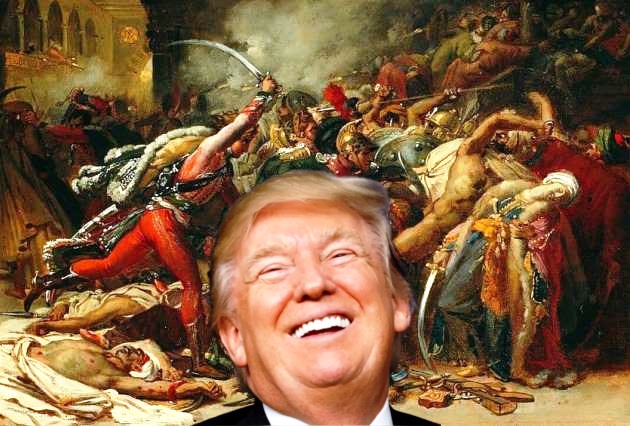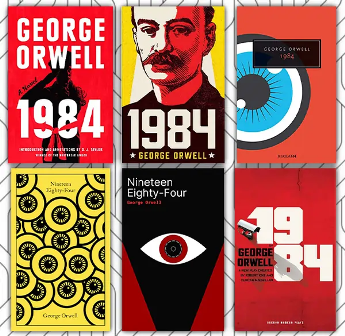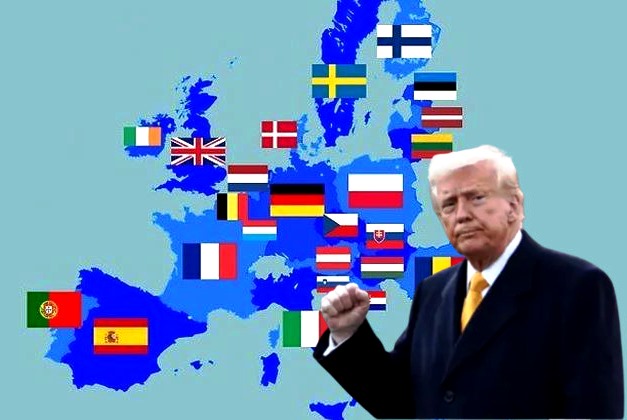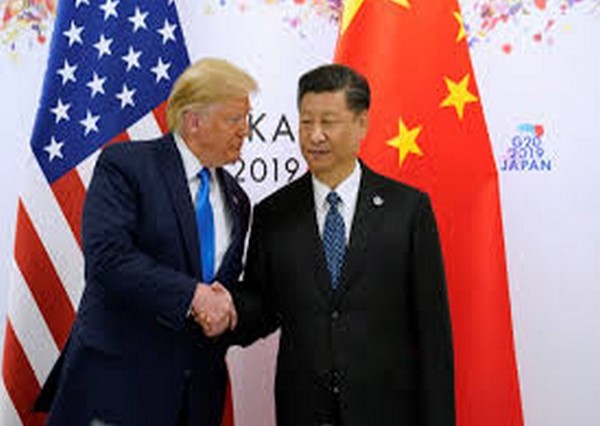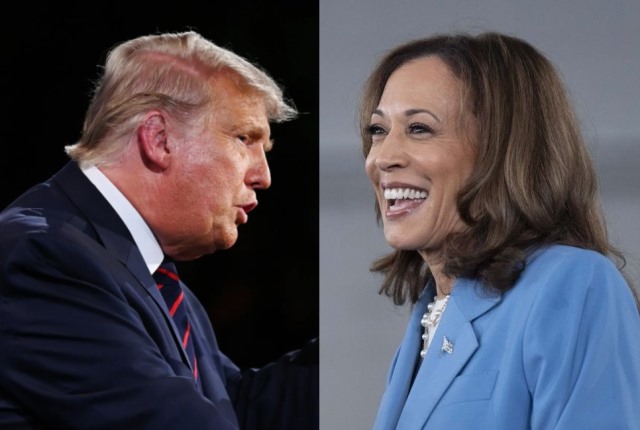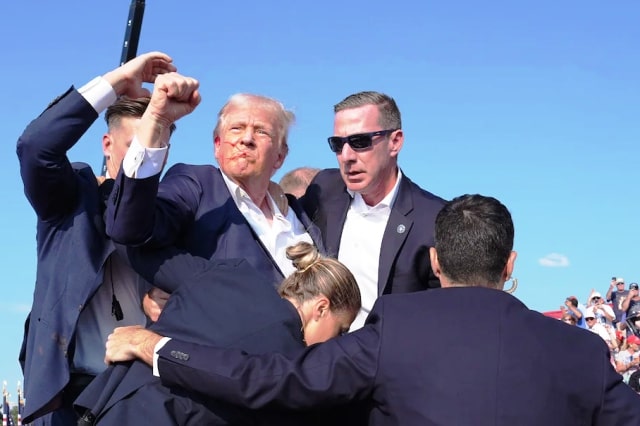Is America under Donald Trump rapidly turning into a Police State dictatorship? Well, all the signs are out there, like an ill, apocalyptic omen, which was waiting to happen.
So what was the crime of Ozturk, 30, a talented Tufts University student? She wrote an opinion piece for the students’ magazine, co-authored with three other students, arguing that that the university should “acknowledge the Palestinian genocide” and “divest from companies with direct or indirect ties to Israel”. This has been the demand of thousands of students, peacefully protesting in America and Europe, since the beginning of the Genocide in Gaza.
So? What is her crime?
Indeed, it has been made out to be crime under the ‘new democracy’ hatched by Trump and his white supremacist, racist, Far-Right team, along with his billionaire buddy, who has a proven fascist past in South Africa, while his recent Nazi salute, celebrating the Trump victory, is the latest testimony.
Rümeysa was detained with no evidence or explanation, by masked men and women, allegedly cops without uniforms, badges or identity cards, in a Boston-area suburb, in front of her shocked neighbourhood, while the footage of this sinister act went viral. A Fulbright PhD scholar, with a legitimate visa, she is being threatened to be packed off to Turkey. Indeed, even her initial whereabouts were not known, not even to her lawyers and relatives.
If this is not like an underworld gang operation with no accountability, what is?
The Department of Homeland Security (DHS) has predictably accused her of supporting Hamas, with no evidence. So, just like being ‘red-under-the-bed’ was the phobia manufactured in the Cold War against dissidents and intellectuals, Hamas is the key word in the Trump-era. Even while top US officials negotiate with Hamas leaders in the comfort zone of Qatar, as Isreal continues to bomb camps, schools and hospitals in Gaza – despite the ceasefire.
There are no charges against Öztürk, her lawyers say. “This is a first step in getting Rümeysa released and back home to Boston so she can continue her studies. But we never should have gotten here in the first place: Rümeysa’s experience is shocking, cruel, and unconstitutional,” Mahsa Khanbabai, one of her attorneys, said. “Criticizing US foreign policy and human rights violations is neither illegal nor grounds for detention… The government must immediately release Rümeysa to continue her studies and rejoin her community.”
With the threat of deportation, in shackles and chains, looming large on campus activists, especially those who are not white, Indian scholar Ranjani Srinivisan, 37, doing her PhD in Columbia University, had a harrowing time — for no rhyme or reason! She had to flee for her life to Canada because her student visa was revoked unceremoniously for being a “terrorist sympathiser”. This was totally out-of-the-blue. She was not even political, it seems!
Talking to the New York Times, a former Fulbright scholar, she said the atmosphere was “dangerous’. “I’m fearful that even the most low-level political speech or just doing what we all do — like shout into the abyss that is social media — can turn into this dystopian nightmare where somebody is calling you a terrorist sympathizer and making you, literally, fear for your life and your safety,” she said.
The case of Mahmoud Khalil is well-known. Again, apparently unknown men entered his home, handcuffed him, and pushed him in a vehicle. His wife pleaded, where are you taking him, why, he has done no crime — but no one was listening. His crime? He was a student activist in Columbia University campaigning against the genocide in Gaza, and seeking an immediate ceasefire. So, he too, becomes a Hamas terrorist.
Said the powerful group, Jewish for Peace, who have orgainised massive protest marches under the banner, ‘March for Palestine’: “Ozturk’s abduction is another signal of the urgency of this moment: we must show the power and strength of our movement to defend student activists, to show the world that we aren’t afraid, and to continue to stand on the right side of history, in opposition to the US and Israeli-funded genocide. We will mobilize in HUGE NUMBERS on April 5 for a national march in Washington. This is not ‘just another demonstration’. This is a decisive moment in our movement for Palestine and in defense of civil liberties.”
Meanwhile, in a horrifying seven-second clip from Germany, a frail young girl was brutally picked up by an armed cop, and thrown on the ground, even as other women, old and young, came to defend her; they too were not spared, while all these men were big, burly male cops, openly attacking women.
Germany, one believes, claims to be a Western Democracy. So why is the government there so obsessively in love with the Israeli war machine — is it the guilt of the Holocaust, enacted like a nightmare now, unleashed on women protesters seeking justice in Palestine?
Meanwhile, words are being eliminated, banned, removed from public places in the US. So much like the Big Brother project in George Orwell’s 1984. If you remove language, can the mind think? Indeed, if you remove certain words, or burn books, as by the Nazis, does the bitter realism of the present and the past, cease to exist?
As this columnist wrote in the last column here (Donald’ Trumpet Plays Songs of Death), “Counterpunch says that the New York Times ran an article about words that are discouraged at Federal Agencies under the new Trumpist administration. A total of 172 words appeared printed in red: Native American. Women. Black. Immigrants. Disability. Gender. Advocacy. Mental health. And, of course, any phrases or expressions having to do with diversity, equity, and inclusion: diverse backgrounds, diverse communities, diverse groups, diversified, diversify, diversifying, enhancing diversity, increasing diversity, inclusiveness, inclusive leadership… These words are all to be purged from websites, grant proposals, class curricula, without delay.”
Trump has signed another executive order now targeting the prestigious Smithsonian Institution, and the 20 museums and research centres which it runs. As many as 35 million people come to these knowledge centers annually in Washington DC, Virginia and New York City. The order seeks to “eliminate improper, divisive, or anti-American ideology” — including, yes, from the National Zoo in Washington.
Typically, like the Orwellian ‘Reverse Double-Speak’, the order is called: ‘Restoring Truth and Sanity to American History’. It also alleges, hilariously indeed, that the American Women’s History Museum, plans to “recognize men as women”. Pray, how, and why, for God’s sake?
Earlier, another prestigious institution, John F Kennedy Center for the Performing Arts in Washington DC, was censored. Trump declared himself as its chairman. Actors and filmmakers condemned this absurd move. Now you can see how the Moral and Culture Police operates in what they claim to be an advanced capitalist democracy. Inspired by the Moral Police of Iran, is it?
Meanwhile, Columbia University’s interim president, Katrina Armstrong, has quit. Trump has targeted it by cancelling $400 million in federal funding; it has been claimed that the university did not do enough to combat ‘anti-semitism’ etc, while peaceful protests and mass encampments in the open rocked the campus, against the killings in Gaza.
Perhaps, taking a cue, Indian film censors have refused to allow the release of a much-acclaimed film, Santosh. Written and directed by British-Indian filmmaker Sandhya Suri, the film is set in north India and probes the murder of a young Dalit girl. It is also an apparent commentary on the police system.
The film has been praised across international platforms, including at Cannes. It was the UK’s official entry for the Oscars’ international feature category, was nominated for a Bafta for best debut feature, and has found fantastic film reviews in the mainline British Press. Shahana Goswami, playing the lead, has won the best actress award at the Asian film awards show.
Surely, the ‘acche din’ which so gloriously began in the ill-fated land of India in the summer of 2014, seems to be now spreading in the West. So who can now dare to say that India is not the Vishwaguru?

